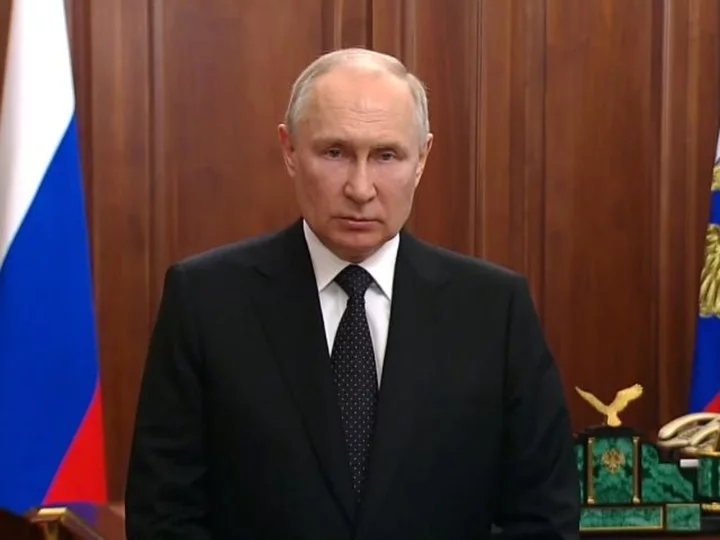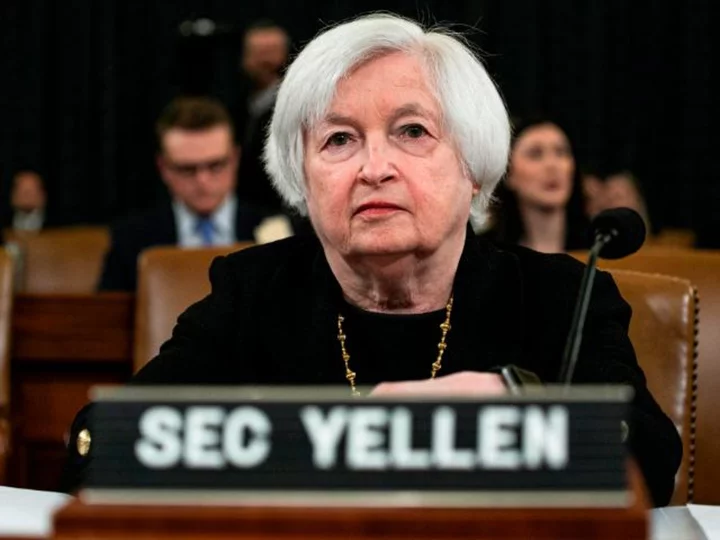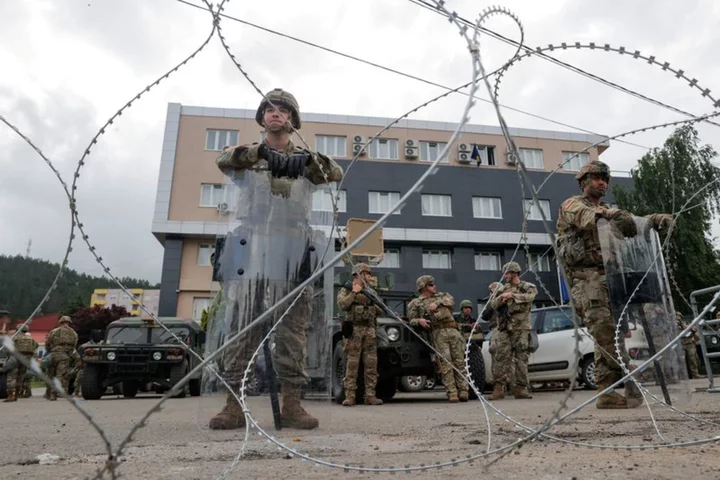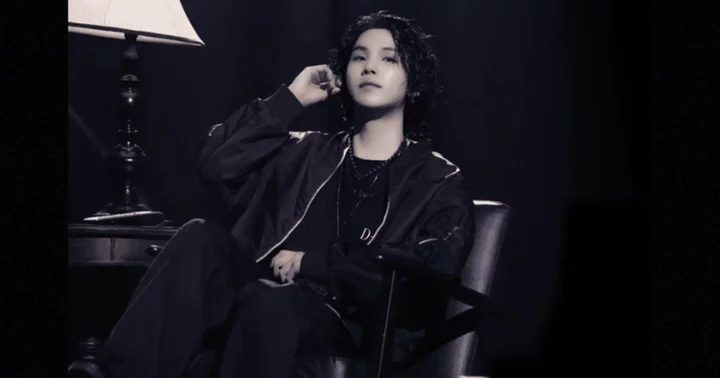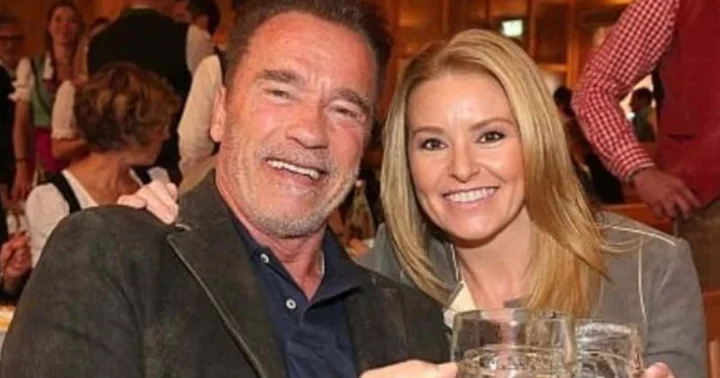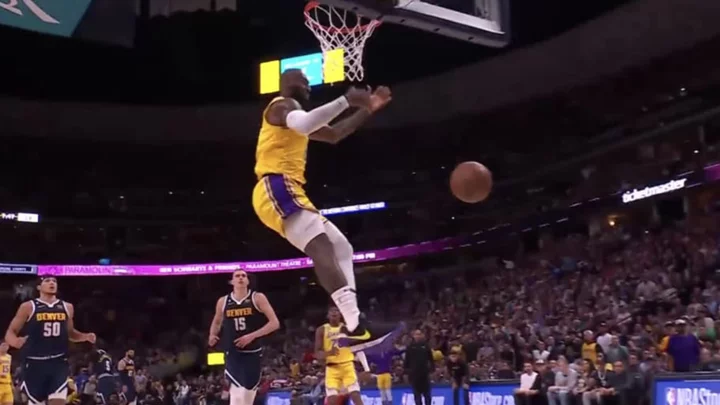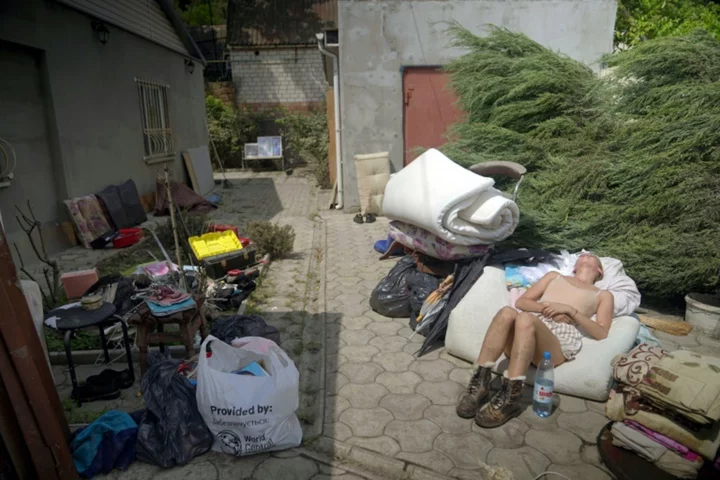This just does not happen in Vladimir Putin's Russia. Especially in public.
The Russian president is facing the most serious threat to his hold on power in all the 23 years he's run the nuclear state. And it is staggering to behold the veneer of total control he has maintained all that time -- the ultimate selling point of his autocracy -- crumble overnight.
It was both inevitable and impossible. Inevitable, as the mismanagement of the war had meant only a system as homogenously closed and immune to criticism as the Kremlin could survive such a heinous misadventure. And impossible as Putin's critics simply vanish, or fall out of windows, or are poisoned savagely. Yet now the fifth largest army in the world is facing a weekend in which fratricide -- the turning of their guns upon their fellow soldiers -- is the only thing that can save the Moscow elite from collapse.
So accustomed are we to viewing Putin is a master tactician, that the opening salvos of Wagner chief Yevgeny Prigozhin's disobedience were at times assessed as a feint -- a bid by Putin to keep his generals on edge with a loyal henchman as their outspoken critic. But what we are seeing today -- with Putin forced to admit that Rostov-on-Don, his main military hub, is out of his control -- puts paid to any idea that this was managed by the Kremlin.
It is likely however Wagner's units have planned some of this for a while. The justification for this rebellion appeared urgent and spontaneous -- an apparent air strike on a Wagner camp in the forest, which the Russian Ministry of Defense has denied -- appeared hours after a remarkable dissection of the rationale behind the war by Prigozhin.
He partially spoke the truth about the war's disastrous beginnings: Russia was not under threat from NATO attack, and Russians were not being persecuted. The one deceit he maintained was to suggest Russia's top brass was behind the invasion plan, and not Putin himself. Wagner's forces have pulled themselves together very fast and moved quickly into Rostov. That's hard to do spontaneously in one afternoon.
Perhaps Prigozhin dreamt he could push Putin into a change at the top of a ministry of defense the Wagner chief has publicly berated for months. But Putin's address on Saturday morning has eradicated that prospect. This is now an existential choice for Russia's elite -- between the president's faltering regime, and the dark, mercenary Frankenstein it created to do its dirty work, which has turned on its masters.
It is a moment of clarity for Russia's military too. A few years ago, Prigozhin's mild critiques would have led to elite special forces in balaclavas walking him away. But now he roams freely, with his sights openly on marching to Moscow. Where are the FSB's special forces? Decimated by the war, or not eager to take on their armed and experienced comrades in Wagner?
This is not the first time this spring we have seen Moscow look weak. The drone attack on the Kremlin in May must have caused the elite around Putin to question how on earth the capital's defenses were so weak. Days later, elite country houses were targeted by yet more Ukrainian drones. Among the Russian rich, Friday's events will remove any question about whether they should doubt Putin's grip on power.
Ukraine will likely be celebrating the disastrous timing of this insurrection inside Russia's ranks. It will likely alter the course of the war in Kyiv's favor. But rebellions rarely end in Russia -- or anywhere -- with the results they set out to achieve. The 1917 removal of Tsar Nicholas II in Russia turned into the Bolshevik Revolution, Lenin and then the Soviet Empire.
As this rare Jacobean drama of Russian basic human frailty plays out, it is not inevitable that improvements will follow. Prigozhin may not win, and the foundations of the Kremlin's control may not collapse. But a weakened Putin may do irrational things to prove his strength.
He may prove unable to accept the logic of defeat in the coming months on the frontlines in Ukraine. He may be unaware of the depth of discontent among his own armed forces, and lack proper control over their actions. Russia's position as a responsible nuclear power rests on stability at the top.
A lot more can go wrong than it can go right. But it is impossible to imagine Putin's regime will ever go back to its previous heights of control from this moment. And it is inevitable that further turmoil and change is ahead.

